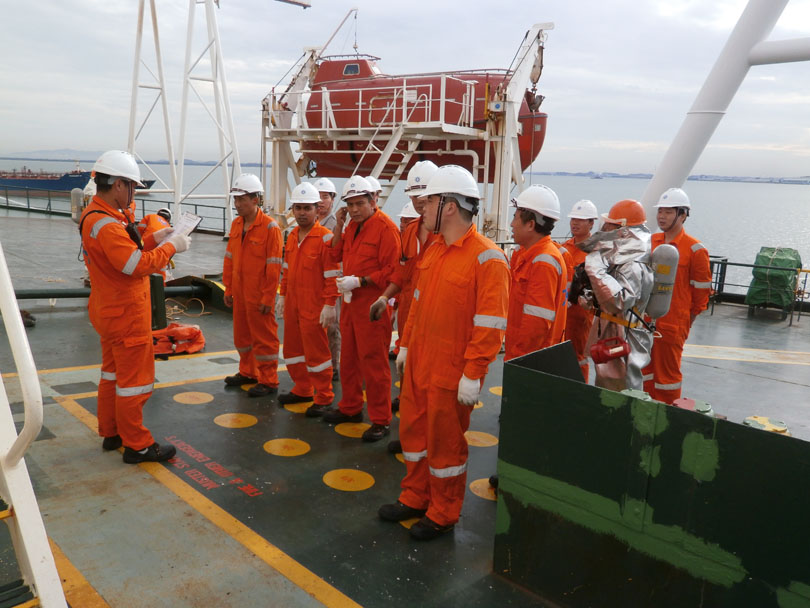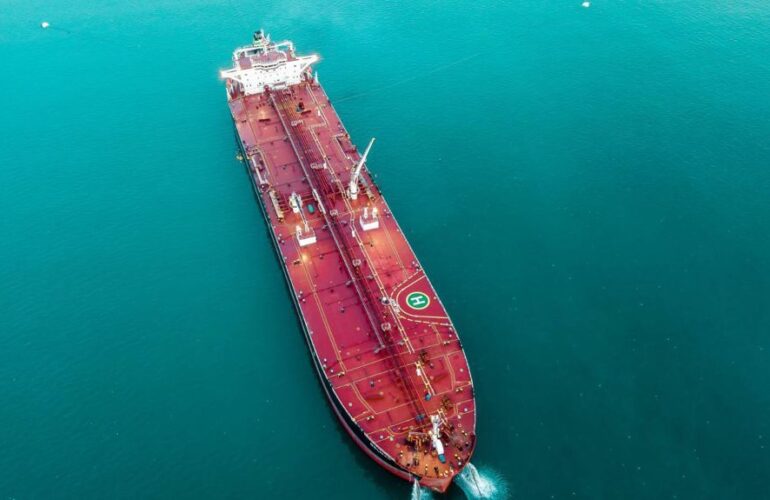Maritime sector holds a significant position in global economy and maritime transport
accounts for around 90% of worldwide trade. Historically the economic prosperity of
nations has been linked to trade through the sea. Hence, we can say that oceans are
the “super-highway,” that links economies together and facilitating exchange of value,
be it food grains, manufactured products natural resources among other goods of
necessity. Hence maritime transport influences lot of industries, directly or indirectly
impacting development of the maritime dependent sectors, which in turn fosters
economic growth and job creation.
Seafarers “The unsung hero’s”
In the past few years, the shipping industry has experienced a massive expansion in
demand reflecting the growth in volume of seaborne trade with a CAGR of 2.5 %. This
has directly resulted in more sea men at work putting a tremendous pressure on
seafarers work life balance. Nearly all things sold world-wide are transported through
ships, which need skilled seafarers. Without “Seafarers” there can be “NO Shipping”.
Needless to say, the word would come to a halt and the people would be devoid
of their basic necessities if the ships and seafarers didn’t work. It is because of
these seafarers businesses around the world continue to thrive. The seafarers are
the unsung heroes and are probably the least understood for their tremendous
contribution they make to the industry. While people on land work in their extremely
cozy offices, seafarers work through toughest conditions to ensure that
businesses around the world do not stop.
Seafarers – “Are they really cared for”
- Are the shipping companies equipped to adhere to the need of their seafarers?
- Is there sound HR policy in place to ensure their aspirations are met?
- Do companies really care for their mental health?
- Is there an effective career development plan for them when they plan to switch
ashore? - Is there any policy in place which takes care of their family, if anything goes
wrong with them during their leave period? - The list can go endless….
Seafarers are a unique breed of workers, often more resilient and robust than their
standard nine-to-five counterparts. They spend months at sea, separated from their
dear ones, and work selflessly. People’s lives and economies would not be the same in
the absence of the activities carried out in seas and without the seafarers. Hence, the
seafarer deserves a better work life balance.
Mentioned below are some of the pointers that the companies should consider:
Need for effective human resource planning and sound HR policy
The companies need to take utmost care for the sacrifices a seafarer makes. Their
needs to be assurance of physical, emotional, financial support and job security so
seafarers can work stress free. Mere hiring of people is not enough, companies must
train them for the purpose. There need to be a proper career development system to
achieve a balance between individual career needs and organizational workforce
requirements. To recruit and retain best talent, organizations not only need to be high
performing but also be seen to be credible with integrity and value system. Hence
organizations which adopt the human resources as ‘’partners in progress’ policy
demonstrating a distinct HR philosophy characterized by employment security,
company flexibility, sharing of financial success with the workforce will survive. This
necessitates that shipping companies have a sound human resource planning for
creating future workforce both for sea and at shore.
Need for Effective Training & Development Programs
Managing people is about working with your workforce on a partnership basis to
achieve the strategic goals of the organization. There need to be proper training and
development program for the seafarer. Training must be viewed as an important
investment for firms’ future success and not as a liability. It is important to enhance
interpersonal relationship between people on board as well on shore to ensure that all
jobs are done smoothly and safely. Teamwork is important as it enables shared
responsibilities. When you work together and succeed together, you feel good and you
foster a better working relationship with your colleagues.
Need for seafarers’ good mental health and wellbeing
Effective training in mental health awareness for seafarers and shore based maritime
professionals working with seafarers can have a very positive impact on seafarers’
mental wellbeing. There need to be a Proper Training that can equip seafarers with the
skills needed to effectively respond to a concern on board or within their company.
Training should also emphasize about the importance of looking after ones own mental
health during a voyage.
Conclusion
The employees of any organisation are the driving force behind its success and an HR
has an important role to play to manage the human capital. Today, employees are
seeking a reliable and supportive environment during uncertain times. Hence,
companies need to focus on building strong leadership and a sense of trust among the
current workforce and potential employees. A strategic HR provides a roadmap for
solving an organization's biggest challenges with people-centric solutions. This
approach requires HR input during policy creation, talent management, compensation,
succession planning, corporate culture and employee wellbeing. For a solid productivity
plan to work, companies should be focusing on accomplishing future goals with
strategies that increase employees' overall productivity. HR can make employees
happier and more productive by providing an enjoyable work environment that help
retain talent. Prosperity from sea have been an historic fact. However, to realise its
potentiality in the new age of technology, an enabling environment need to be created.
This can happen through effective HR policies and linking the aspirations of seafarers to
those policies.
At Nevoxel Consulting, we strive to engage as partners to maritime organisation and
seafarers alike through enacting the role of creating inquisitiveness and interest in the
organisation for seafarers, while identifying the best possible candidate fit for the
organisation. Our approach is consultative. We act as career – coaches to seafarers to
provide market situations including types of jobs, skills in demand, and career
progression prior to co-creating the most appropriate career roadmap for the seafarer
along with action plans. This career enabler role is aimed at developing a healthy
professional relationship with seafarers and mapping their interest and fitment to the
role entails a consultative approach to strategic workforce management to the clients.
Author: Neetu Jaiswal
Founder: Nevoxel Counsulting




